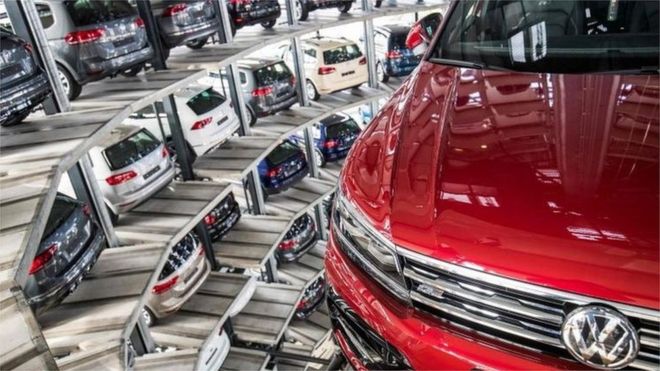
Volkswagen and Ford have said they will work together on developing self-driving and electric cars in an attempt to reduce costs on new technologies.
VW plans to invest $2.6bn (£2.1bn) in Ford’s self-driving unit, which is valued at $7bn.
The move comes after the duo said in March they would build vans together.
The two firms said whilst they remained “fiercely competitive” in the car market, the tie-up would give them “significant global scale” in new tech.
The agreement is the latest example of once fierce industry rivals joining up to develop new technologies.
In February, BMW and Daimler unveiled a joint venture covering new-generation services such as driverless vehicles, ride-hailing, and pay-per-use cars.
While late last year, Honda invested $2.75bn (£2.1bn) in rival General Motors’ driverless unit with a view to launching a fleet of unmanned taxis.
As part of the deal, VW will become an equal stakeholder in Ford’s self-driving cars venture, while Ford will get access to VW’s electric vehicle technology.
VW chief executive Herbert Diess said the firms were continuing to look at other areas which they could collaborate on.
The tie-up “improves the positions of both companies through greater capital efficiency, further growth and improved competitiveness,” he said.
Prof Peter Wells, director of the Centre for Automotive Industry Research at Cardiff Business School, told the BBC earlier this year, that the increasing number of collaborations between car firms was aimed at lowering the risk and cost of developing new technologies.
“The problem for the industry is that it is struggling to afford its own future.
“The research and development to develop these new technologies also costs billions, so it makes sense to share the burden rather than duplicating,” he said.
Car firms are also facing new competitors in the industry such as Google and Uber which are also working on self-driving vehicles and have access to enormous financial resources.
